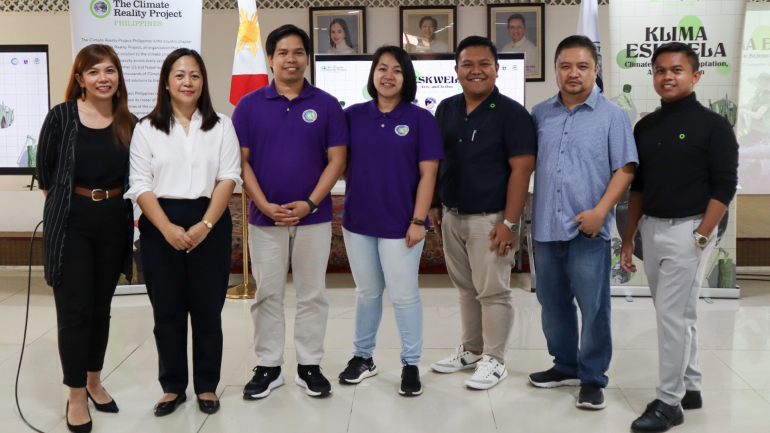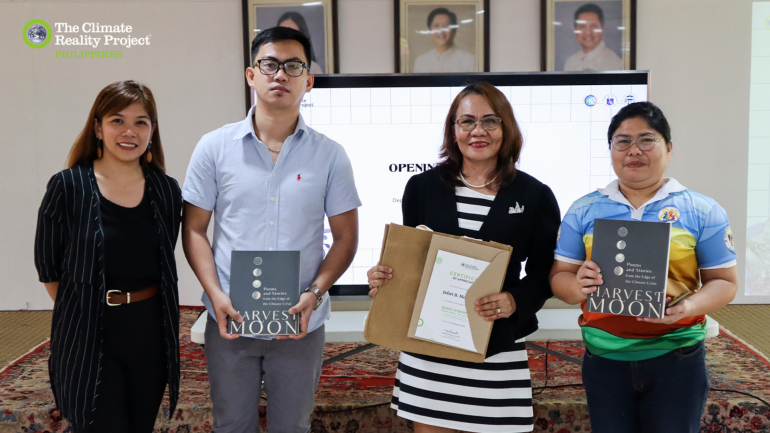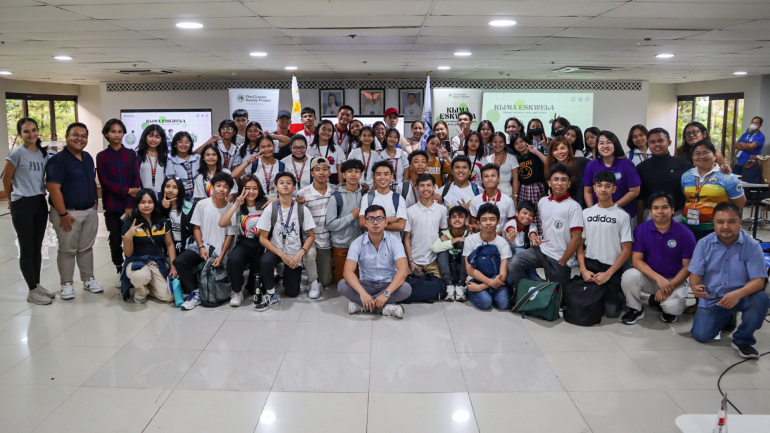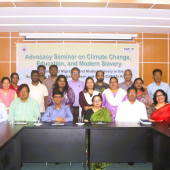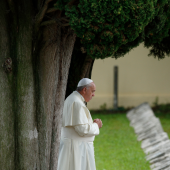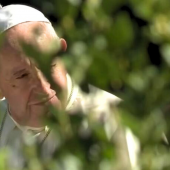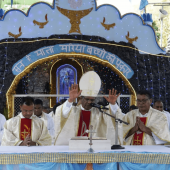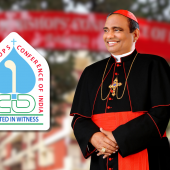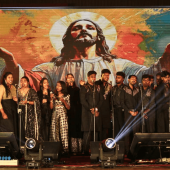Climate Change Workshop for Students and Faculty in Philippines
The Climate Reality Project, in collaboration with the Climate Change Commission, the Department of Education Ormoc City Division, and the City Government of Ormoc, hosted a two-day symposium on climate science, arts, and action for students and faculty on September 1 and 2 at the Ormoc City Hall in Leyte, Philippines.
This workshop was witnessed by over fifty students and teachers from the New Ormoc National High School in Ormoc City, Leyte, Eastern Visayas.
Rosilyn C. Sanchez, Officer-in-Charge of the Ormoc City Environment and Natural Resource Office, stated in her presentation that Ormoc City Ordinance No. 51 was enacted as a result of such circumstances. This ordinance prohibits the sale and use of [certain] SUPs [single-use plastics] in Ormoc City.
Sanchez explained, "Sales are only permitted to customers outside of Ormoc City if the Official Receipt of Sale indicates that the buyer resides outside of Ormoc City."
Sanchez stated that this regulation prohibits the use of the following single-use plastics: sando bags with handles made of plastic or plastic composite, including oxo-biodegradable, with less than 15 microns in thickness; stirrers made of plastic or plastic composite (all sizes, thicknesses, and lengths); and plastic roll bags with less than 15 microns in thickness, excluding oxo-biodegradable and oxo-degradable, among others.
A Climate Reality Leader, Jonathan John Maldupana, presented an informative session on the fundamentals of climate change. He focused on how human actions affect the Earth's climate systems and the solutions available to combat this problem.
Erwin Husmalaga, who serves as the Climate Change Commission's Information Officer, discussed various policy frameworks and strategies implemented by the Philippine government to combat and mitigate the detrimental effects of climate change during his presentation.
Meanwhile, Joseph Pilapil, Project Evaluation Officer of the City Government of Ormoc, emphasized that the City of Ormoc, which is frequently at the forefront of climate risks, is continuously searching for better ways to protect its residents. He spoke about the city's Local Climate Change Action Plan (LCCAP).
"The City of Ormoc, as usual ground zero of climate risks, is always seeking better solutions to keep its people safe from disasters. Adapting now means saving lives, saving properties, and saving resources," Pilapil said in his presentation.
Dr. Eduardo Mangaoang, a distinguished member of the National Panel of Technical Experts at the Climate Change Commission, emphasized the importance of Ormoc City taking proactive measures to safeguard against the imminent risks posed by flash floods and potential landslides originating from the uplands.
"Ormoc City is basically a basin. It is the recipient of anything that comes from the uplands. This is why the Ormoc [city] government is looking at rehabilitating your watersheds and forests. This is critical. Any development in the city [without] the development [protection] of the uplands will only be temporary because you’ll be in danger of severe impacts of climate change during extreme weather events," Mangaoang said.
Keith Sigfred Ancheta, a Climate Reality Leader and the Coordinator of the Youth Cluster for Climate Reality The Philippines highlighted the connection between plastic pollution and climate change. He emphasized the urgency of tackling both issues simultaneously.
According to Ancheta, large quantities of greenhouse gases are released throughout the entire lifecycle of plastics, starting from their production until their disposal.
"We cannot have a very linear approach where we extract raw materials, use them, and dispose of them. That’s the current model we have. We need to shift to a more circular approach. In order to achieve this, we need to redesign the current system," Ancheta explained.
During the Klima Eskwela session's second day, a creative workshop was scheduled. Here, both students and faculty members collaborated in crafting literary works, composing songs, and creating artwork.
These creations will be exhibited as a contribution to Climate Reality Philippines' Poets for Climate initiative, supporting the global When Is Now campaign.
Following the event, participants pledged to reduce their use of single-use plastics, adopt energy-efficient practices, support and participate in the restoration of natural ecosystems in the city, and serve as sustainability ambassadors in our school and community.
The relaunched Climate Reality Project Philippine Branch is one of 11 branches of the international non-profit Climate Reality, which was founded by former U.S. Vice President Al Gore.
The organization collaborates with the Philippines government and civil society partners to provide Climate Reality Leaders with spaces and opportunities to share their stories, promote their climate initiatives, and contribute to the country's adaptation and mitigation policies, plans, and programs for climate change. -Leahna Villajos
Radio Veritas Asia (RVA), a media platform of the Catholic Church, aims to share Christ. RVA started in 1969 as a continental Catholic radio station to serve Asian countries in their respective local language, thus earning the tag “the Voice of Asian Christianity.” Responding to the emerging context, RVA embraced media platforms to connect with the global Asian audience via its 21 language websites and various social media platforms.





